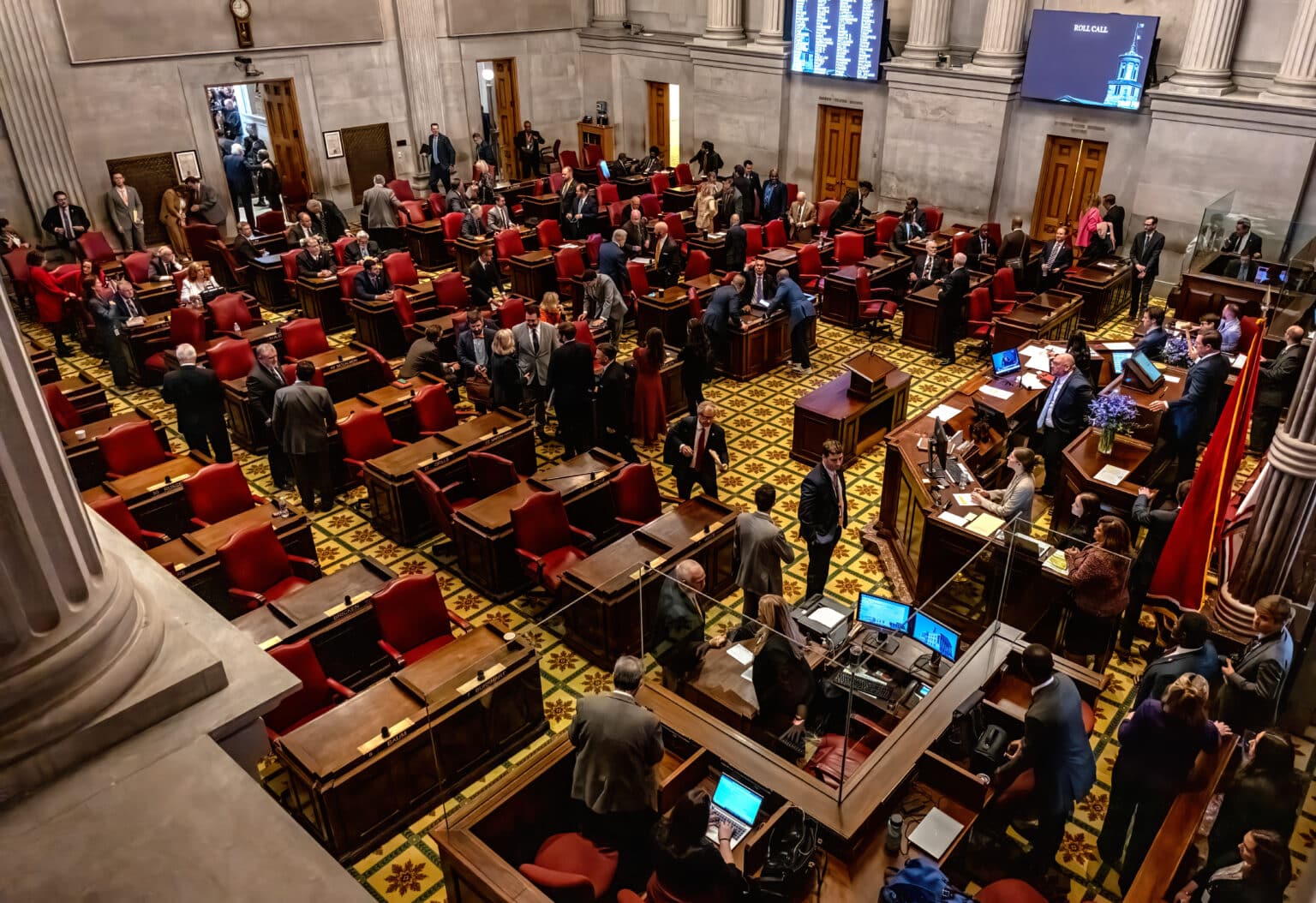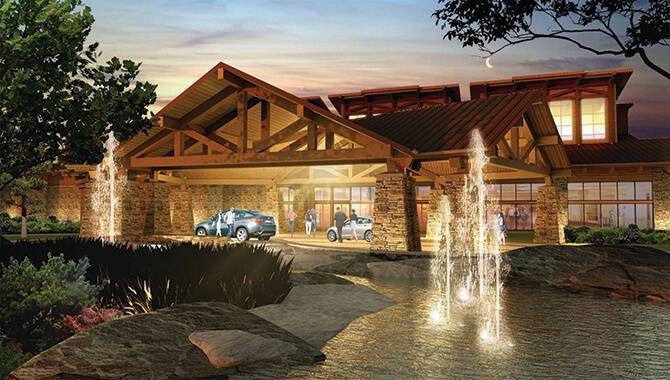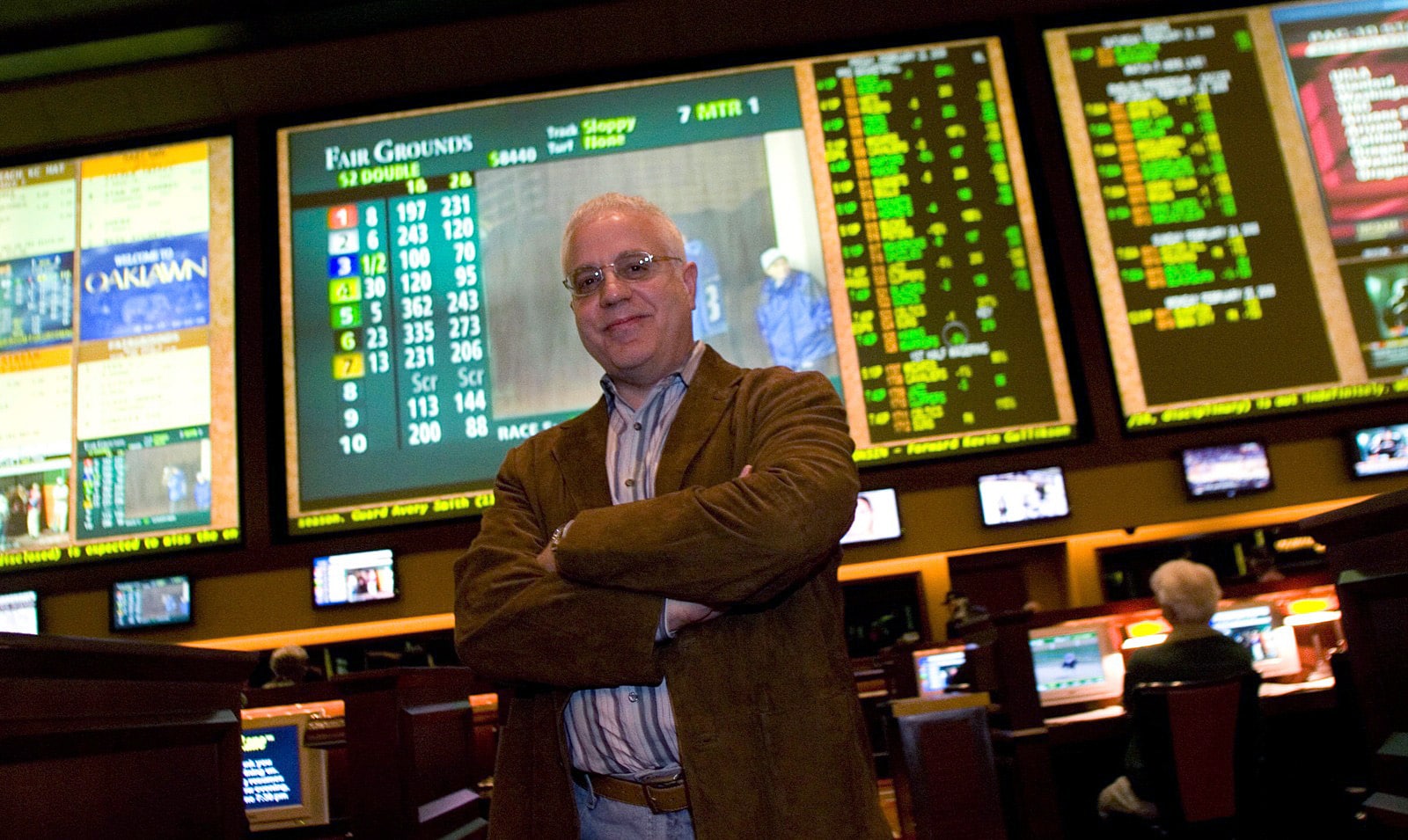
THE GREATER GOOD

As general manager of Eagle Mountain Casino in California’s Central Valley, Matthew Mingrone is as aware as anyone of the role Golden State tribal casinos perform for their communities. When Eagle Mountain is financially successful, the casino’s revenue funds roads, housing, health care, education and other programs for the Tule River Indian Tribe. The casino gives residents of Tule River Reservation and nearby Porterville a place to congregate and escape the social isolation induced by the COVID-19 pandemic. Eagle Mountain leaves guests fed and entertained and, on a good day, with a bit more spare change in their pocket.
Mingrone is also witness to the unique challenges placed on sovereign nations like the Tule River Tribe, which relies heavily on gaming revenue in lieu of a tax base to support itself. The tribe’s reservation is tucked into the Sierra Nevada foothills, land that was designated by the federal government in 1873. Though the area is rich in natural beauty – grasslands and oak woodlands-savannah turning into conifer forest as elevation increases, with the Tule River running through the middle of the reservation – the land can be dangerous to reach by car. Water, the most crucial of resources, is pumped unequally into Eagle Mountain, which requires 40,000 to 50,000 gallons a day.
“When you’re using that much water, that means houses can’t be built, because as the whole state is experiencing, we are in a very sensitive drought situation,” Mingrone says. “I know that a lot of parts of the state get publicity for running out of water over the years, as it’s been put to me by tribal elders and tribal chairmen, but it’s an every summer occurrence here.”
Not long after Eagle Mountain opened in 1996, Tule River Tribe leaders began crafting ideas to relocate the casino to a more sustainable, easy-to-access location. The tribe spent 20 years planning for relocation. Then in 2016, it sent the Department of the Interior Bureau of Indian Affairs an application requesting approximately 40 acres of land in trust by the US government to develop a casino, which would be built 15 miles west of the reservation inside the City of Porterville.
In early December 2020, the tribe at last got word from the DOI. Its request had been approved.
“It was celebration,” Mingrone tells Gaming America. “It’s been 25 years of hard work, different various councils and chairmen as well as management. It was definitely a sense of relief but still there is a lot of work ahead of us, but excitement I guess would be a great way to summarize it.”
The Tule River Tribe was one of two Central Valley tribes to receive significant DOI approval in recent months, the other being the Tejon Indian Tribe. A long-anticipated casino project between the tribe and Hard Rock was approved by Assistant Secretary of Indian Affairs Tara Sweeney. Pending final approval from California Governor Gavin Newsom, the $600m resort will be built south of Bakersfield.
“From the start of our relationship with the United States Government in 1851, our Tribe has fought for a homeland for our people. Today we are two major steps closer to that dream,” said Octavio Escobedo III, chairman of the Tejon Indian Tribe. “The Department’s decision enables us to move closer to the promise of self-determination through economic development.”Final sign-offs from the DOI have known to be delayed by interruptions due to staff changes and presidential elections. For both Central Valley tribes to receive approval of their casino plans during the last months of Donald Trump’s presidency was a fortuitous occurrence in an otherwise difficult year.
While the Tejon Indian Tribe waits on Governor Newsom’s word, construction of the new Eagle Mountain Casino is set to break ground in the first week of April this year, with a tentative opening scheduled for late 2022. The Tule River Tribe can finally focus its gaming ambitions on a resolute timeline, all the while continuing to serve guests through the ongoing pandemic. Mingrone says demand at the casino was “pretty much immediate” as soon as it opened doors for good in August, a welcome sign after the property temporarily closed in March and again in July.
“It was devastating,” he says of the lockdown. “We thought we’d close in the middle of March and it would be a two-week thing and we can open back up, but it was devastating for the whole area. Where we live in the Central Valley of California, it’s very agricultural-based. In Kern County, which is the county right next door, it is both oil and petroleum-based and agricultural-based, so it’s a very blue-collar area. Anybody that lost hours or was laid off really suffered hard.”
The Tule River Tribe paid employees salary and benefits for the first six weeks of the closure. Elsewhere in the state, tribal casino employees weren’t as fortunate. The Pechanga Band of Luiseño Indians began layoffs at Pechanga Resort & Casino. Officials at San Manuel Casino, which is undergoing a $550m expansion, sent a solemn notice saying they would have to furlough employees for the first time in the property’s 34-year history.
The decision to reopen casinos led tribal gaming leaders down a tightrope of ensuring their community’s safety versus maintaining vital revenue. Since California tribes operate outside the jurisdiction of Governor Newsom, they got to decide when to reopen and under what conditions. According to the American Gaming Association’s (AGA) COVID-19 casino tracker, all of California’s 77 tribal casinos were open as of early March, but with most properties enforcing tight capacity restrictions.
The incentives to stay open are usually too great. Before the pandemic, tribal gaming in California generated approximately $20bn in economic impact, including 2016 gross gaming revenue of $8.4bn. The state represented more than a quarter of the $31.5bn total tribal gaming revenue that year.
Tribal casinos aren’t required to release financial reports so it may be several months or longer until the pandemic’s economic impact on tribal gaming is fully realized. TheAGA reported in February that commercial gaming revenue dropped 31% in 2020, which provides at least a comparison to how much tribal properties may have lost.
For tribal communities, the economic impact of the pandemic is only overshadowed by the health risks posed by the virus. In December, the Center for Disease Control and Prevention published a six-month, 14-state report showing age-adjusted COVID-19 mortality among American Indians and Alaska Natives to be 1.8 times that among non-Hispanic Whites. Beyond the mere loss of life, the passing of older American Indians contributes to loss of culture, heritage and language.
When the Tule River Tribe planned out its reopening of Eagle Mountain, the safety of elders was the first and foremost concern. The casino adopted a smoke-free indoor policy and invested in plexiglass and electrostatic foggers among other measures. “It’s a very strong and vibrant elders community that visits property quite a bit,” Mingrone says. “This is their social time. This is their place to get food if you live on the reservation.”Recently the tribe reached another big milestone when it began delivering COVID-19 vaccinations at an on-reservation clinic. Casino employees were among the first essential workers to be offered vaccinations, and Mingrone took his first dose in mid-February.
Accessibility of the vaccine gives Mingrone a glimpse into a post-COVID future at the new Eagle Mountain. He expects the Porterville location won’t feel much different than the present casino, which is known locally as “The People’s House.” While the move will bring some welcome improvements, including an expanded casino floor from 1,200 to 1,700 slot machines, a 2,000-seat events center and more dining options, the Eagle Mountain brand will carry on.
“We shouldn’t change and we won’t change because our guests, the people that live in our two-county service areas, they’re not changing,” he says. “We will continue to be a value proposition which means you’re going to get more value for your entertainment dollar, your disposable income, here more than anywhere else. We’re going to be what we’ve always been, which is a local destination.”
Tags/Keywords
Players trust our reporting due to our commitment to unbiased and professional evaluations of the iGaming sector. We track hundreds of platforms and industry updates daily to ensure our news feed and leaderboards reflect the most recent market shifts. With nearly two decades of experience within iGaming, our team provides a wealth of expert knowledge. This long-standing expertise enables us to deliver thorough, reliable news and guidance to our readers.






